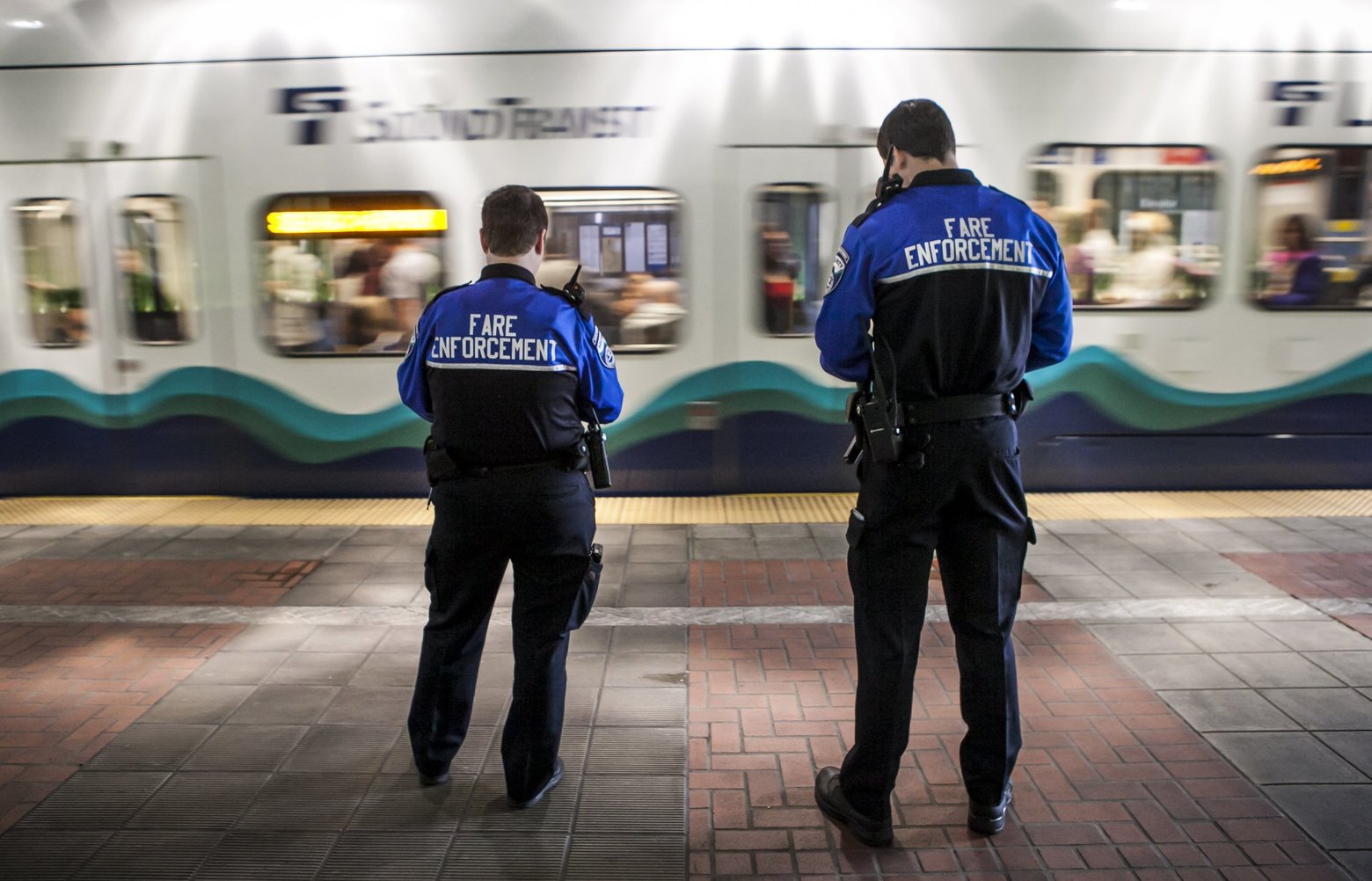
From 2018 to 2019, Sound Transit collected data on its fare enforcement, aiming to better understand the impact of its enforcement practices across riders of different demographics. The findings were stark: Just 9% of people who ride Sound Transit are Black, but Black people made up 22% of all individuals penalized for fare infractions. This racial disparity grew even worse with more severe penalties.
After those findings came out Transportation Choices Coalition and more than 40 partner organizations called on Sound Transit to reduce punitive measures, create special considerations for youth, participate in an income-based fare program, and, most importantly, divorce the enforcement process from the court system. The agency conducted public surveys and listening sessions, and eventually directed its chief executive officer to report on the issue. COVID slowed down this process, but in September 2021 Sound Transit launched its fare ambassador pilot program as part of its work to correct the issue.
Recently, at January’s meeting of the Sound Transit Board of Directors, outgoing CEO Peter Rogoff delivered his report on the issue and recommendations for action. Alison Eisinger, Executive Director of Seattle/King County Coalition on Homelessness, Katie Wilson, General Secretary of the Transit Riders Union, and Alex Hudson, Executive Director of Transportation Choices Coalition, issued the following statement in response:
“While we are in a wildly different place than we were two years ago when this conversation started in earnest – the goal remains the same: truly increase transit access for all potential riders, and end harmful and disproportionate punitive impacts to communities of color and riders experiencing homelessness. It means that we may need to not ask ‘How do we punish people who cannot pay?’ but instead, ‘How can we ensure everyone has access to an affordable fare?’
“We support the ongoing implementation of a fully funded Fare Ambassadors program that focuses on connecting people to resources rather than applying punitive measures. We also support the proposal in front of the board to eliminate suspensions, end removal from the train for fare nonpayment, increase the number of warnings, and non-financial ways to resolve a citation.
“However, we remain concerned that fare non-payment may still lead to a civil infraction issued through the court system and fines that go to debt collection agencies if unpaid. Penalties like these can ruin people’s lives, for example by preventing them from finding rental housing, and there’s no evidence that they’re an effective deterrent. The people most harmed are likely to be riders of color, especially Black riders; low-income riders; riders with disabilities and riders experiencing homelessness, housing security or mental illness. We urge you to wholly divorce fare enforcement from collections and the criminal legal system.
“We also urge Sound Transit to cap fines at no more than $50, to permanently adopt the subsidized annual pass program, and to work with other agencies in the region to expand this and other reduced or zero-fare programs so that more low-income riders have access to our region’s light rail system.”
Sound Transit’s Board of Directors will consider changes to the Fare Enforcement policy on April 7, and vote on the measure at their April 28 meeting. Anyone who wants Sound Transit’s approach to be less punitive can submit comments by email to emailtheboard@soundtransit.org or by sending a message through this action with Transit Riders Union. The proposal as written is a step in the right direction, but could do more to correct the agency’s over-enforcement on riders of color.




